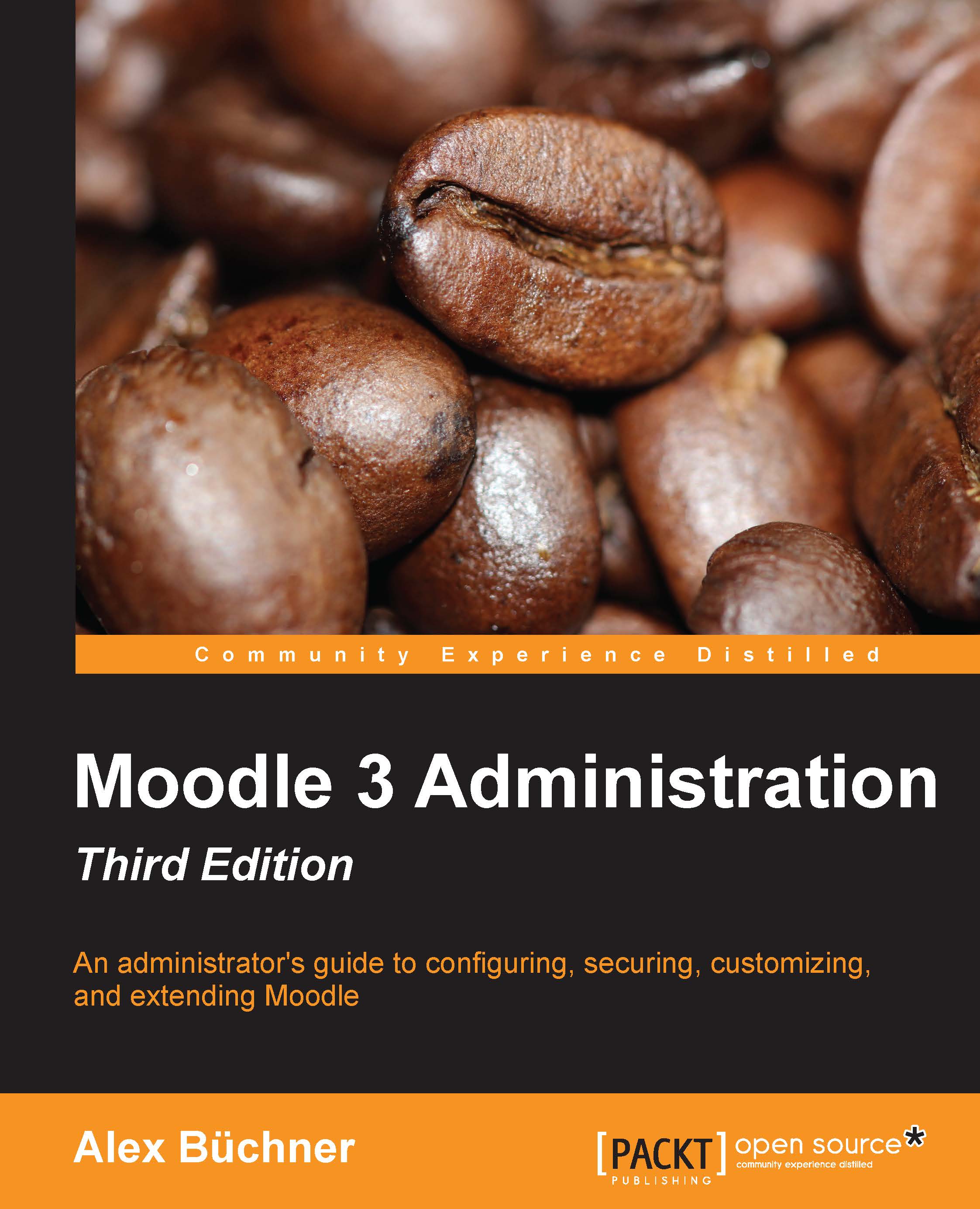-
Book Overview & Buying

-
Table Of Contents

Moodle 3 Administration, Third Edition - Third Edition
By :

Moodle 3 Administration, Third Edition
By:
Overview of this book
Moodle is the de facto standard for open source learning platforms. However, setting up and managing a learning environment can be a complex task since it covers a wide range of technical, organizational, and pedagogical topics. This ranges from basic user and course management, to configuring plugins and design elements, all the way to system settings, performance optimization, events frameworks, and so on.
This book concentrates on basic tasks such as how to set up and configure Moodle and how to perform day-to-day administration activities, and progresses on to more advanced topics that show you how to customize and extend Moodle, manage courses, cohorts, and users, and how to work with roles and capabilities. You’ll learn to configure Moodle plugins and ensure your VLE conforms to pedagogical and technical requirements in your organization. You’ll then learn how to integrate the VLE via web services and network it with other sites, including Mahara, and extend your system via plugins and LTI. By the end of this book, you will be able to set up an efficient, fully fledged, and secure Moodle system.
Table of Contents (19 chapters)
Preface
 Free Chapter
Free Chapter
1. Moodle Installation
2. The Moodle System
3. Courses, Users, and Roles
4. Course Management
5. User Management
6. Managing Permissions – Roles and Capabilities
7. Moodle Look and Feel
8. Moodle Plugins
9. Moodle Configuration
10. Moodle Logging and Reporting
11. Moodle Security and Privacy
12. Moodle Performance and Optimization
13. Backup and Restore
14. Moodle Admin Tools
15. Moodle Integration
16. Moodle Networking
A. Configuration Settings
Index

